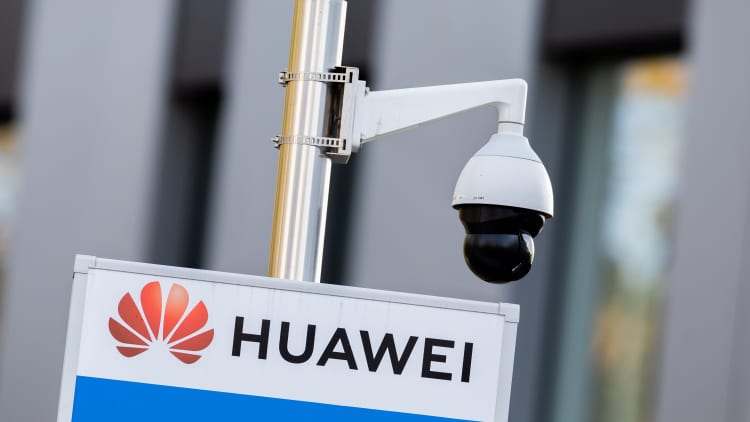Chinese tech giant Huawei said new charges brought against the company by the U.S. Department of Justice were without merit and were part of an attempt to "irrevocably damage Huawei's reputation and its business."
Federal prosecutors announced Thursday new criminal charges against Huawei and two of its U.S. subsidiaries, which included racketeering conspiracy charges and a charge of plotting to steal trade secrets from American companies.
Huawei also allegedly assisted Iran's government in domestic surveillance during the 2009 demonstrations in Tehran and tried to conceal the scope of its business in North Korea, according to the indictment.
The superseding indictment, announced in federal court in Brooklyn, New York, adds to previous charges filed against Huawei. The earlier charges, unsealed last January, alleged the company lied to banks, committed wire fraud and violated economic sanctions against Iran, and Huawei pleaded not guilty to those charges.
The U.S. has been misusing its national power to oppress Chinese companies with no proof of any wrongdoing. Such practice is disgraceful and immoral...Geng ShuangChina's Ministry of Foreign Affairs
"These new charges are without merit and are based largely on recycled civil disputes from the last 20 years that have been previously settled, litigated and, in some cases, rejected by federal judges and juries," Huawei said in a statement Friday morning. "The US government will not prevail with its charges, which we will prove to be both unfounded and unfair."
China's Ministry of Foreign Affairs also had strong words for the DOJ's decision.
"The U.S. has been misusing its national power to oppress Chinese companies with no proof of any wrongdoing. Such practice is disgraceful and immoral, and it is beneath the status of the U.S. as a major country," said the ministry's spokesman, Geng Shuang, according to the official translation.
He said the move was "economic bullying" and a "blatant denial of the market principle, for which the U.S. has been a self-claimed champion."
"It severely undermines the reputation and credibility of the U.S., as well as the interests of American companies," Geng added.
Huawei is involved in a number of legal battles in the United States: Federal prosecutors indicted Huawei in Seattle on theft of trade secret charges relating to T-Mobile, which was also unsealed last January.
Chief Financial Officer Meng Wanzhou, charged with bank and wire fraud that were said to have violated U.S. sanctions on Iran, faces extradition to the United States. Meng, the daughter of Huawei founder Ren Zhengfei, was arrested in Vancouver, Canada in December 2018.
The Chinese firm has also filed two lawsuits against Verizon alleging the U.S. carrier infringed patents held by Huawei.
Washington has accused Huawei of being a national security threat, claiming its equipment could be used by the Chinese government to spy on Americans. Huawei has repeatedly denied those allegations.
President Donald Trump's administration is working to isolate the company from developing a larger foothold in U.S. partner countries. Specifically, the administration worked to keep members of the "five eyes" intelligence-sharing group that includes the U.S., U.K., Canada, Australia and New Zealand, from working with Huawei.
While Australia has banned Huawei from participating in building infrastructure for the fifth generation of high-speed mobile internet — known as 5G — the United Kingdom recently allowed the company limited access to some of its 5G mobile networks.
5G is the next generation of high-speed mobile technology that aims to provide faster data speeds and more bandwidth to carry growing levels of web traffic.
Last year, the company and its affiliates were put on a blacklist that restricted its access to U.S. technology — but, the U.S. Department of Commerce had been issuing temporary licenses to allow American firms to continue doing business with Huawei.
On Thursday, the Commerce Department extended that license for another 45 days.
Watch: New US charges against Huawei

— CNBC's Amanda Macias contributed to this report.


